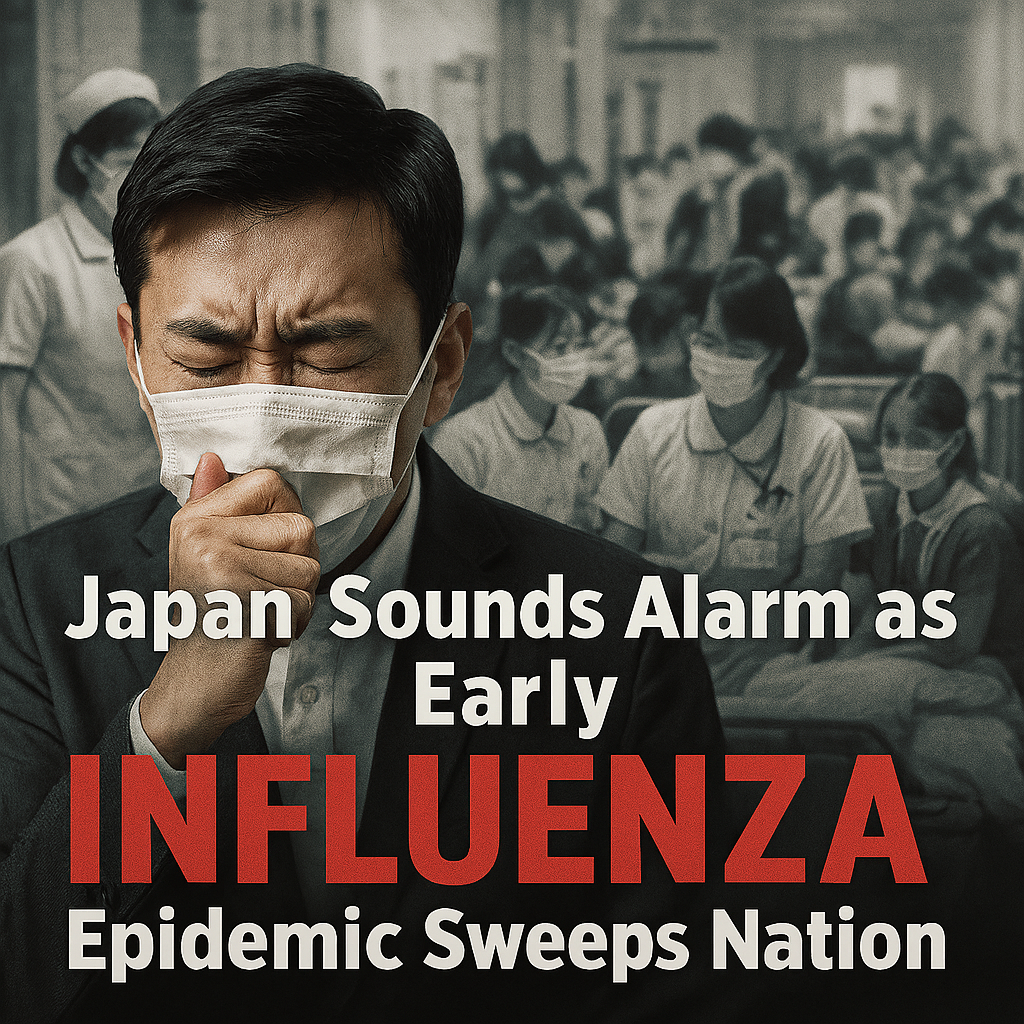Hospitals Overwhelmed and Schools Forced to Close in a Surge Reminiscent of Pandemic Years
TOKYO, Japan – Japan has officially declared a nationwide influenza epidemic, triggered by an explosive and unusually early surge in cases. The outbreak has arrived a full five weeks ahead of the typical flu season, sparking concerns that the virus may be evolving at an accelerated rate.
The situation has escalated rapidly, forcing dozens of schools to temporarily shut down and pushing hospitals to their limits as they cope with a flood of patients, creating scenes eerily similar to the recent COVID-19 pandemic.
By the Numbers: A Rapid Escalation
According to Japan’s Ministry of Health, the scale of the outbreak became clear by early October:
- Over 4,000 hospitalizations have been recorded due to influenza, representing a fourfold increase from the previous week.
- The national average has surged past the official epidemic threshold, with 1.04 patients per medical institution.
- At least 135 schools and childcare centers across the country have closed their doors to contain the spread.
Experts Warn of an “Aggressive” and Evolving Virus
Health experts are emphasizing that this is not a typical flu season. The wave is not only early but also notably aggressive.
“The flu season has started really early this year, but in the changing global environment this might become a more common scenario,” said Professor Yoko Tsukamoto, a health sciences expert at Hokkaido University. She warned that increased global travel and population movement may be supercharging the virus’s ability to adapt.
This suggests that current influenza strains could be evolving to spread more efficiently or resist standard treatments, a pattern being observed in other parts of the world.
Regional Hotspots and National Impact
Some regions are being hit harder than others. Significant outbreaks have been reported in:
- Okinawa
- Tokyo
- Kagoshima
In a stark example, Yamagata Prefecture was forced to close an entire primary school after 22 out of its 36 pupils tested positive for influenza-like symptoms.
Nationwide, hospitals are reporting severe crowding and staff shortages, leading authorities to urge the public to avoid unnecessary visits to medical facilities.
What You Need to Do: Protection and Precautions
With cases expected to peak sooner than usual, Japanese authorities and health experts are issuing clear guidance:
- Get Vaccinated Immediately: This is especially crucial for vulnerable groups, including the elderly, young children, and individuals with pre-existing health conditions. “For vulnerable groups, early vaccination is crucial,” stressed Professor Tsukamoto.
- Practice Common-Sense Hygiene: Regularly wash your hands, wear a mask in crowded places, and avoid spreading infection if you feel unwell.
- Seek Early Consultation: If you develop flu-like symptoms, consult a doctor early instead of waiting and risking a visit to an overwhelmed hospital.
While no major restrictions have been reintroduced, schools and workplaces are being advised to consider flexible attendance policies to help slow the virus’s spread. Travelers to Japan are also encouraged to maintain strong hygiene practices to protect themselves.
